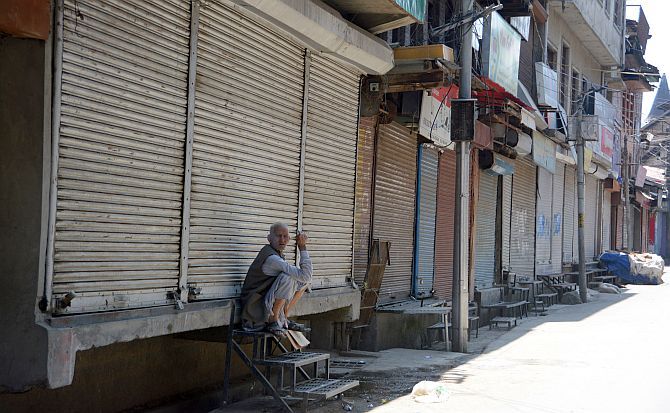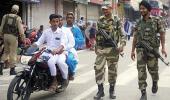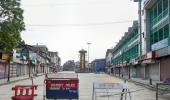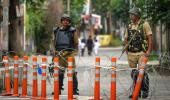With virtually no business being transacted for 50 days, small-scale entrepreneurs and apple traders on Monday said they were desperately hoping for an end to the clampdown in the Kashmir Valley and are unable to cope with threats from terror groups.

The Valley, which was brought under a virtual curfew with communication networks snapped on August 5 after the government abrogated special status to Jammu and Kashmir, has seen little difference in the last seven weeks as public transport is still not available and schools waiting for students to collect assignments.
The apple trade, which is the lifeline of a majority of people in North Kashmir's Sopore and three districts of South Kashmir, has taken a hit. There is a shortfall of 30,000 tonnes till September.
The figures till mid-September in 2018 was 80,000 tonnes and this year, it is a little less than 50,000 tonnes, the officials said.
The reasons: Threats by terror groups, beating of orchard owners and burning down of trucks ferrying the fruit outside the Valley.
"We have been sending messages to the police but nothing is forthcoming on the ground, other than tall claims from top police officials in the media," a trader from militancy-infested Shopian district of South Kashmir said.
The trader, who did not wish to be identified, said he had managed to take his fruit to New Delhi during the night and earn around Rs 60,000.
"On my return, three militants approached me and gave me a choice. Either damaging my truck or getting ready to be shot in the leg. I had no option... It will take around Rs 1.5 lakh for me to refurbish the vehicle again," he said.

Showing the ready to plucked apples at his orchard, he said, "I am too scared now."
There are similar stories of other apple orchard owners who have claimed that they have been unable to sell their product because of threat from the terror groups.
Police said that till mid-September, at least 40 incidents of apple orchard owners, labourers and vehicle operators being beaten up or threatened by the terror groups have been reported.
"Why have the anti-terror operations ended. Why is police not being able to find out the real culprits behind the posters and threats?" says Isaaq Ahmed, an apple orchard owner in south Kashmir.
Many officials, orchard owners and other business owners feel the government should act with firmness and end the stalemate and establish the rule of law.
Though restrictions at various places in the Valley have been lifted by and large, the clampdown, which started on August 5, on communication, including mobile phones and internet, remain in force and there are no plans to lift them in the near future, officials said.

Landlines had been activated in the entire Kashmir valley but the number of civilian subscribers was little over 18,000 while nearly 30,000 were government, business establishments, schools, hospitals and hotels.
Farooq Khan, adviser to the Jammu and Kashmir governor, had made it clear earlier that examinations would be held on time. The exams are generally held in last week of October or early November.
Shopkeepers, as per handwritten posters appearing every now and then in localities, are following a routine of opening markets at the crack of dawn and then shutting shop around 9 am. They again open for business at 6 pm and close by 10 pm.
"This is something that has been decided at the local mosque and we are simply adhering to it," Riyaz Wani, a general merchant, at the Jawahar Nagar market in Civil Lines area said.
The shops in downtown Srinagar are generally closed as majority of owners stay at far off places.
"I have a shop at Eidgah in downtown Srinagar and I will be able to reach that place only by 10 am as no public transport is available," Altaf Sheikh, who stays at Shivpora, an area in the Civil Lines, said.

In the Valley, only senior students or their parents are coming to schools to collect their assignments. The local newspapers are full of advertisements from private schools asking students to collect assignments.
"We can't help if children do not turn up for classes. We have already made several requests but nothing seems to be of any help as parents are sceptical about the safety of their wards," said an owner of a private school in the city.
The tourism front has also taken a hit due to the clampdown.
Majority of hotels are empty and taxi service off the road.
"Seeing the tourist traffic last year, I brought a new taxi on loan from bank. Today I have to pay the installment to the bank and I dont have any income," says Shariq Ahmed, a taxi driver.











 © 2025
© 2025